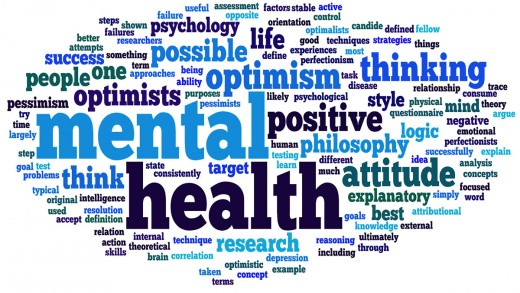Mental Health and the Effects of Social Media?
- CDadeposted 6 years ago
0

Is there something wrong with showing only the best sides of ourselves online? This past May, researchers at the Royal Society for Public Health and the Young Health Movement in the U.K published their report, #StatusOfMind. They surveyed almost 1,500 teens and young people aged 14 to 24. The study examined both the benefits, such as social approval, and drawbacks, like cyber bullying, of social media use on young people’s mental health. After comparing the usage rates of multiple social media outlets, they found that Instagram, Snapchat and Facebook ranked worst for mental health, and Youtube and Twitter topped the list as more positive. What are your thoughts on the mental health effects of social media?
Read the full report: #StatusOfMind-Young Health Movement.pdfI don't think it affects it any more than Real Life interactions. Ultimately, we are responsible for how we respond to our environment, and whether or not that comes in the form of online or in person is, in my opinion, irrelevant.
- CDadeposted 6 years ago
0
Thank you for your comment. We’ll have to agree to disagree, however. Consider youths, ages 10-18, who commit suicide. I don’t like to use this as an example, but it fits here. Why is that more and more teens are killing themselves, behind their computer screen? This could be because the online social media space is what’s “real”, more real than real life, for many teens and young adults. I’ve even noted some disturbing suicide challenges taking place online across the world. Why do teens partake? First, their brains, more specifically the prefrontal cortex, responsible for planning and complex thought processes, are still developing. Second, teenagers do not tease apart “fake” life from “real” life in the way that you and I do. For some teens, real life is re-created, edited, re-written, and posted online.
Young people may even place greater value on their social media interactions and identities than their day-to-day ones. If the “fake” social media interactions do not affect youth more than “real” life, than these “fake” interactions would not exacerbate poor mental health in an already vulnerable group, and give rise to an alarming rate of young suicides. I am aware there are outliers that also contribute. Still, these “fake” social media interactions crossover into real life, and too often lead to “real” deaths.
As for your argument on individuals’ response to their environments, negative mental health will affect natural individual responses. But environment will also determine to your behaviors. For example, while something online might not affect you as greatly, that same thing might set off a teen to end his or her own life.
Not to mention, youths of color must deal with another factor, systemic racism, when it comes to mental health. This additional wear and tear from society will no doubt contribute to young peoples’ everyday responses and mental health. In other words, sometimes your environment shapes your response. In this case, negative mental health can stem from both online and in-person interactions, and affect your response. Still, setting is important, because on social media, people can only condemn your character when you respond. In person, however, someone could misconstrue your “response” and the penalty could be much greater.
Our environments are never irrelevant in terms of how we respond; they're rather correlative.
-Blue Whale Challenge: http://www.philly.com/philly/health/kid … -game.html
-How Social Media Affects Teenagers: https://childmind.org/article/how-using … teenagers/
-How Social Media Shapes Identity: https://www.youtube.com/watch?v=CSpyZor-Byk
-Racism and Child Health: https://www.ncbi.nlm.nih.gov/pmc/articles/PMC2794434/I don't really see any compelling evidence there that social media is harmful to mental health any more than real life. Because alternatively, social media would provide a wealth of positive reinforcement as well as negative feedback. All social media does really is make more stimuli, both positive and negative, available at a faster rate. Environment does not have to affect our choices, and many people blame the environment instead of focusing on what is actually responsible: ourselves. Young people may or may not choose to do that, but that is life. Ultimately we are responsible for our own actions. All social media did was up the stimuli.
Related Discussions
- 5
Social Media and our youth's mental health. A product of Liberalsim?
by Tim Mitchell 12 months ago
An interesting article I read this morning is; Progressively Mental State of the Union: New studies correlate poor mental health with leftist politics. It is from the American Conservative (Apr 14, 2023) The opening paragraph states;"Last month, James Freeman, assistant editor of the Wall...
- 6
Is mental health effected by social media?
by Rae-LeighDawn 9 years ago
Is mental health effected by social media?Are mental health problems worse or becoming better since media has taken over. Does the internet play a role in society's mental well being and ability to function?
- 15
Is mental health problem cause by social problems or it has genetic roots?
by alexandriaruthk 10 years ago
Is mental health problem cause by social problems or it has genetic roots?What are the first signs of it?
- 41
TikTok, what gives? What happen to freedom of speech? Assembly?
by Tim Mitchell 4 weeks ago
"The House of Representatives voted 352-65 on Wednesday for a bill that threatens to ban the social media platform TikTok. The Protecting Americans from Foreign Adversary Controlled Applications Act would ban TikTok from app stores unless its Chinese parent company ByteDance gives up ownership...
- 8
Is anorexia caused mainly by what people see on social media or what they hear f
by Valerie 6 years ago
Is anorexia caused mainly by what people see on social media or what they hear from their peers?
- 10
What do you think ? Young generation take advantages from social media or wastin
by Qadir Brohi 8 years ago
What do you think ? Young generation take advantages from social media or wasting their time ?







